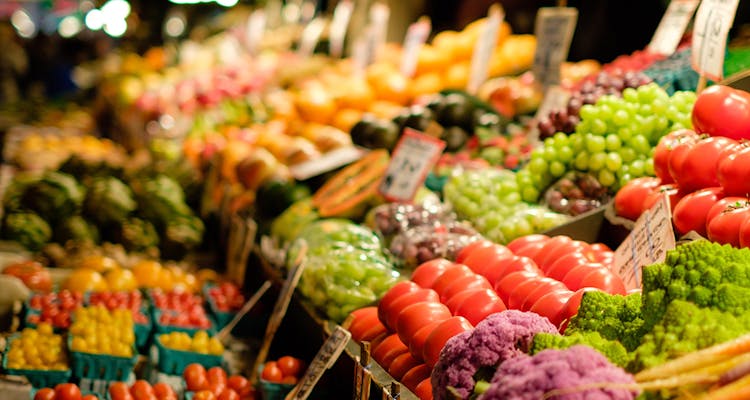Sitting down to eat a nice dinner with a glass of Maddalena Pinot Grigio is the culmination of a good day. Visiting with family while you have a delicious meal is important to many. How do you make a meal healthier ?
Contents
Consider More Fruits and Vegetables
Most people have decided that eating more fruits and vegetables is an important change in their lifestyle. They know that there are nutrients that their bodies need and they are willing to make a serious turnaround in what they put into their bodies.
When buying vegetables and fruits, it’s important to choose produce that is fresh, nutritious, and free of harmful contaminants. Here are some factors to consider when shopping for these items :
1. Seasonality : Opt for vegetables and fruits that are in season. They are typically fresher, more flavorful, and often less expensive than those that are out of season.
2. Appearance : Look for vegetables and fruits that are free from bruises, cracks, and other signs of damage. They should be brightly colored, plump, and firm to the touch.
3. Freshness : Choose produce that has been stored properly and has not been sitting on the shelf for too long. Signs of spoilage include sliminess, mold, and a strong odor.
4. Organic vs. Conventional : Consider buying organic produce when possible. Organic farming practices limit the use of synthetic pesticides and fertilizers, reducing the risk of exposure to harmful chemicals. Additionally, organic produce may contain higher levels of certain nutrients, such as antioxidants.
5. Pesticide Residue : If you are unable to buy organic produce, consider choosing items that are known to have low levels of pesticide residue, such as avocados, corn, pineapples, and sweet potatoes.
6. Local vs. Imported : Buying local produce supports local farmers and reduces the carbon footprint of your food, as it does not have to be transported long distances. Imported produce, on the other hand, may have been treated with preservatives to extend its shelf life and may not be as fresh.
7. Packaging : Consider the packaging of your produce. Some packaging materials, such as plastic, can leach harmful chemicals into the food. Opt for produce that is sold loose or in biodegradable packaging, where possible.
8. Labels : Look for labels that indicate the origin of the produce and any certifications, such as USDA Organic, that verify its quality.
9. Price : While it’s important to choose high-quality produce, it’s also important to consider the cost. Shop around and compare prices at different stores to find the best deals.
10. Personal Taste : Finally, choose vegetables and fruits that you enjoy eating. Try new varieties and incorporate a variety of colors and textures into your diet to ensure that you are getting a wide range of nutrients.
When buying vegetables and fruits, it’s important to consider factors such as seasonality, appearance, freshness, organic vs. conventional, pesticide residue, local vs. imported, packaging, labels, price, and personal taste. By taking these factors into account, you can choose produce that is both nutritious and delicious.
Why Consider Organic Vegetables ?
Organic vegetables have numerous health and environmental benefits compared to conventionally grown vegetables.
Health Benefits :
1. Fewer Pesticides : Organic farming practices prohibit the use of synthetic pesticides, resulting in organic vegetables having lower levels of pesticide residue. This reduces the risk of exposure to harmful chemicals and their potential health effects.
2. More Nutritional Value : Studies have shown that organic vegetables contain higher levels of certain nutrients, such as Vitamin C, antioxidants, and minerals like iron and magnesium, compared to conventionally grown vegetables.
3. No Genetically Modified Organisms (GMOs) : Organic farming prohibits the use of genetically modified seeds, ensuring that the vegetables you consume are not genetically altered.
Environmental Benefits :
1. Reduces Environmental Pollution : Organic farming methods rely on natural processes and materials, reducing the use of synthetic fertilizers and pesticides, which can pollute the air, water, and soil.
2. Promotes Biodiversity : Organic farming helps to maintain and promote biodiversity by avoiding the use of monoculture crops and promoting crop rotation. This helps to maintain a healthy and balanced ecosystem.
3. Supports Sustainable Agriculture : Organic farming practices aim to promote long-term soil health and fertility through the use of compost and other natural methods, reducing the need for synthetic fertilizers and promoting sustainable agriculture.
In conclusion, consuming organic vegetables offers numerous health and environmental benefits compared to conventionally grown vegetables. By choosing organic, you can reduce your exposure to harmful chemicals, consume more nutritious food, support sustainable agriculture, and promote a healthier environment.






Comments are off this post!